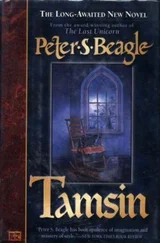Peter Beagle - The Line Between
Здесь есть возможность читать онлайн «Peter Beagle - The Line Between» весь текст электронной книги совершенно бесплатно (целиком полную версию без сокращений). В некоторых случаях можно слушать аудио, скачать через торрент в формате fb2 и присутствует краткое содержание. Жанр: Фэнтези, на английском языке. Описание произведения, (предисловие) а так же отзывы посетителей доступны на портале библиотеки ЛибКат.
- Название:The Line Between
- Автор:
- Жанр:
- Год:неизвестен
- ISBN:нет данных
- Рейтинг книги:5 / 5. Голосов: 1
-
Избранное:Добавить в избранное
- Отзывы:
-
Ваша оценка:
- 100
- 1
- 2
- 3
- 4
- 5
The Line Between: краткое содержание, описание и аннотация
Предлагаем к чтению аннотацию, описание, краткое содержание или предисловие (зависит от того, что написал сам автор книги «The Line Between»). Если вы не нашли необходимую информацию о книге — напишите в комментариях, мы постараемся отыскать её.
The Line Between — читать онлайн бесплатно полную книгу (весь текст) целиком
Ниже представлен текст книги, разбитый по страницам. Система сохранения места последней прочитанной страницы, позволяет с удобством читать онлайн бесплатно книгу «The Line Between», без необходимости каждый раз заново искать на чём Вы остановились. Поставьте закладку, и сможете в любой момент перейти на страницу, на которой закончили чтение.
Интервал:
Закладка:
The report said things like myocardial infarction and ventricular fibril–lation; death almost certainly instant. We buried Sam in an Astroturf cem–etery in Queens, within earshot of the Van Wyck Expressway. Mike and Sarah had managed to handle the funeral arrangements from Fort Lauderdale, which proved they remembered me well enough to know that I'd likely have wound up stashing their son in a Dumpster or a recy–cling tin. A limousine from the mortuary brought them to the funeral: they stepped out blinking against the sharp autumn sunlight, looking pale and small, for all the years in Florida. I went over to embrace them, and we had a moment to murmur incoherently together before two men in dark suits took them away to the grave site. I followed with Marianne, because there was no one else I knew.
It didn't surprise me. I'd learned long since that Sam preferred to keep the several worlds in which he moved—music, theater, journalism, ballet classes—utterly separate from each other. I'd known the names of some of his friends and colleagues for years, without ever meeting one. By the same token, I knew myself to be the entire mysterious, vaguely glamor–ous West Coast world into which he vanished once in a great while. Until now, it had all suited and amused me.
An old Friday–night poker acquaintance drifted up on my left as I stood at the coffin behind Mike and Sarah and the dark suits. We shook hands, and he whispered, «Yes, I know, I got fat," while I was still trying to remember his name. I never did.
The rabbi looked like a basketball player, and he hadn't known Sam. It was a generic eulogy, no worse for the most part than many I've sat through, until he fixed his shiny blue gaze on Mike and Sarah and started in about the tragedy of living to bury an only son. I turned away, eyeing the exits. Damn, Sam, if you hadn't stuck us with these damn ringside seats, we could slide out of here right now, and be on the second beer before anyone noticed. But he had to stay, so I did too.
That was when I saw the small dark woman standing alone. Not that she was
physically isolated—you couldn't be in that crowd, and still see grave and rabbi—but her solitude, her apartness, was as plain as if she had been a homeless lunatic, trundling a Safeway cart, all by herself with God. She was looking at the rabbi, but not seeing or hearing him. I patted Marianne's arm and eased away. It's okay, Sam. I see her.
Close to, she was thin, and looked paler because of her dark hair and eyes. She looked older, too—I'm bad at ages, and I'd been braced for a schoolgirl in a leather miniskirt, but this woman had to be twenty–eight or twenty–nine, surely. I said quietly, «You're Emilia. He never told me your last name.»
When she turned to face me, I saw that her nose must have been broken once, and not set quite right. The effect was oddly attractive, the bumpy bridge lending strength and age to a face whose adult bone struc–ture had not yet finished its work. Only her eyes were a full–grown wom–an's eyes, an old woman's eyes just now. An intelligent, ordinary face that grief had turned shockingly beautiful.
«It's Rossi," she said. «Emily Rossi.» Her voice was low, with the muf–fled evenness that comes with fighting not to cry. «Please, is there any chance at all that you could be Jacob Holtz?»
«Sam called me Jake," I answered. «We can go now.»
As we started to move away, she paused and looked back at the rabbi, who was still telling Mike and Sarah what they felt about their loss. We could smell the raw earth from where we stood. She said softly, «I imag–ined going up to them, talking with them, letting them know that I loved him, too, that he didn't die alone. But he did, he did, and I'd never have the courage anyway.» The back of her neck seemed as vulnerable as a small child's. She said, «He always called me Emilia.»
Being an executor means, finally, cleaning the place up. In a legal sense, there wasn't that much for me to do, once the police had finally unsealed the apartment and released Sam's body for burial. Bills paid off, bank account closed out, credit cards canceled, Mike and Sarah's names replac–ing his on God knows how many computers—how little it takes, after all, to delete us from the Great Database. A heavenly keystroke, no more.
But somebody has to clean up, and the landlord was anxious to have Sam's apartment empty, ready to be rented again for quadruple what Sam had been paying. I spent all day every day for more than three weeks at the apartment, sorting my friend's possessions into ever more meaning–less heaps, then starting over with a new system for determining what went or stayed. With electricity and telephone long since cut off, the place remained cold even when the sun was shining in the windows, and tumultuous Columbus Avenue outside looked so remote, so unattainable, that I felt like an astronaut marooned on the moon.
Emily Rossi—Sam's Emilia—came all the way from New Jersey almost every day, inventing assignments for herself as a partial cover, She usually arrived at the
apartment around noon; though sometimes she would bring a sleeping bag and a cassette player—and Millamant, whom Marianne was happy to relinquish—stay the night, and be at work before I got there. I was uneasy about that, but Emilia liked it. «I was always happy here," she said. «This was my safe place, with Sam. I want to be here as long as I can.»
I was grateful for her presence, in part because she was far less senti–mental than I about most of Sam's belongings. Not all of them: once she had been folding and setting aside clothes for donation (gangster suit apart, his wardrobe could have been worn by the average British prime minister), when I returned from one more trek through the uncharted depths of The Dark Continent to find her rocking back and forth, dry–eyed, holding a gray silk shirt tightly against her cheek.
«The first time he ever held me," she whispered. «Look," and she turned the shirt so that I could see the scattering of faded brown stains on one sleeve. «My blood," Emilia said. «It got all over him, but he never even noticed.»
I stared at her. She said, «There was a man. I stopped seeing him before I ever met Sam. He followed me. He caught me on the street one day—downtown, near Port Authority.» She touched her nose quickly, and then the area around her left eye. «I don't know how I got away from him. I knew somebody at Ceilidh, but I don't remember going there. The only thing I'm clear on, even today, is that somebody was holding me, washing my face, talking to me, so gently. It turned out to be Sam.»
She kept turning the shirt in her hands, revealing other bloodstains. «He called the police, he called an ambulance, he went with me to the hospital. And when they wouldn't keep me, even overnight, he took me home with him and fed me, and gave me his bed. I stayed three days.»
«It's the feeding part that awes me," I said. «I could see everything else, but Sam didn't cook for anybody. Sam didn't even make coffee.»
«Chinese takeout. Mexican takeout. For a special treat, sushi.» She smiled then, sniffling only slightly. «He took care of me, Jake. I wasn't used to it, it made me really nervous for a while.» She turned sharply away from me, looking toward the corner where the bed had stood. «I was getting used to it, though. Tell me some more about how he was in high school.»
So I told her more, day by day, as we worked, and the apartment grew emptier and even colder, and somehow smaller. I told her about writing songs, doing homework together, playing silly board games late at night, and about trying to sneak into jazz clubs when we were too young to be admitted legally. I told her everything I could about what it was like to see him dance at seventeen. In return, Emilia told me about Adventures.
Читать дальшеИнтервал:
Закладка:
Похожие книги на «The Line Between»
Представляем Вашему вниманию похожие книги на «The Line Between» списком для выбора. Мы отобрали схожую по названию и смыслу литературу в надежде предоставить читателям больше вариантов отыскать новые, интересные, ещё непрочитанные произведения.
Обсуждение, отзывы о книге «The Line Between» и просто собственные мнения читателей. Оставьте ваши комментарии, напишите, что Вы думаете о произведении, его смысле или главных героях. Укажите что конкретно понравилось, а что нет, и почему Вы так считаете.












